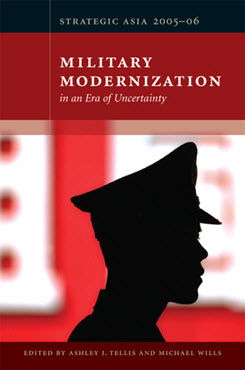The Strategic Future and Military Capabilities of the Two Koreas
This chapter assesses the main factors that will shape the security strategies and defense capabilities of North and South Korea in the next five years, particularly the potential for major shifts in the military confrontation between the two.
EXECUTIVE SUMMARY
This chapter assesses the main factors that will shape the security strategies and defense capabilities of North and South Korea in the next five years, particularly the potential for major shifts in the military confrontation between the two.
MAIN ARGUMENT
Due to changing strategic priorities, the ground force standoff that has long dominated peninsular security will decline in relevance over the next five years. In order to compensate for North Korea’s economic vulnerabilities, Pyongyang will increasingly focus on deterrence and longer-range strike capabilities. Seoul will pursue deterrence and defense capabilities even as it moves toward political accommodation with Pyongyang and develops a more regionally oriented defense policy.
POLICY IMPLICATIONS
- Policies toward North Korea should not be premised on the expectation of regime collapse, even if this possibility cannot be precluded.
- Pyongyang is shifting to a more asymmetric military strategy in an attempt to enhance North Korea’s economic power while simultaneously favoring the defense sector. This shift will greatly complicate efforts to constrain or dismantle North Korea’s strategic capabilities in exchange for security assurances and economic assistance extended to Pyongyang.
- South Korea is seeking to develop capabilities that will diminish potential vulnerabilities to North Korean attack, but without automatically assuming adversarial relations with the North. Seoul will be increasingly unwilling, however, to undertake major long-term defense investments based on a predominantly threat-based military strategy.
- Both Koreas are seeking to increase their political-military autonomy from external powers. Meaningful threat reduction is indispensable for nonadversarial relations between North and South, but Seoul may settle for far less. This could pose acute risks to the U.S.-ROK alliance in future years.
Strategic Asia
The Strategic Asia annual edited volume incorporates assessments of economic, political, and military trends and focuses on the strategies that drive policy in the region. Learn more about Strategic Asia.


